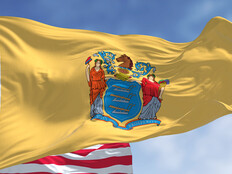What President Obama’s Broadband Agenda Means for Your City
The federal government wants to make it easier for communities to expand broadband by offering them training programs, technical assistance and guidance for supporting higher Internet speeds.
The Department of Commerce’s National Telecommunications and Information Administration (NTIA) will offer these resources to communities through a new initiative called BroadbandUSA. The NTIA initiative is part of a larger effort President Barack Obama announced this week to promote access to faster, cheaper broadband nationwide.
President Obama also directed federal agencies, particularly the Federal Communications Commission, to remove unnecessary regulations that limit competition and slow the expansion of broadband. Agencies are expected to report their progress to the president by July.
Today, laws in 19 states prevent or discourage broadband competition. A newly formed Broadband Opportunity Council, made up of more than a dozen federal agencies, will solicit public feedback on regulatory barriers to broadband.
“This isn’t just about making it easier to stream Netflix or scroll through your Facebook newsfeed, although that’s fun, and it is frustrating if you’re waiting for a long time before the thing finally comes up,” Obama said during a speech Wednesday in Cedar Rapids, Iowa. “This is about helping local businesses grow and prosper and compete in a global economy. It’s about giving the entrepreneur [and] the small businessperson on Main Street a chance to compete with the folks out in Silicon Valley or across the globe.”
Building Gigabit Cities
Cedar Rapids is the first city in Iowa to boast Gigabit Internet services and joins a small but growing list of cities — including Chattanooga, Tenn.; Kansas City, Mo., and Lafayette, La. — with Internet speeds nearly 100 times faster than the national average.
“There are incumbent players that have a large stake in preventing states from expanding competition,” Chattanooga Mayor Andy Berke said during a conference call with reporters. Berke said competition is an important part of net neutrality because when there is high-speed broadband, “you don’t have to ration it.”
BroadbandUSA will also provide communities with leads for potential funding sources for expanding broadband capabilities. In addition, eligible rural carriers can apply for funding through the Department of Agriculture’s Community Connect broadband grant program, according to a White House fact sheet.
In June, the president will host a Community Broadband Summit to work with mayors on the next steps for expanding broadband. The burning desire to bring next-generation broadband Internet to U.S. cities has united officials from 55 cities under a single organization: Next Century Cities.
“Next Century Cities exists because cities know they need to be in the driver’s seat if they want to deliver next-generation broadband to residents, businesses and neighborhoods,” Executive Director Deb Socia said in a statement. “The president’s announcement shows the administration is listening — and responding. We welcome these commitments, and look forward to supporting any effort to help cities succeed.”
Communities interested in learning more about BroadbandUSA can register for a Jan. 28 webinar.









